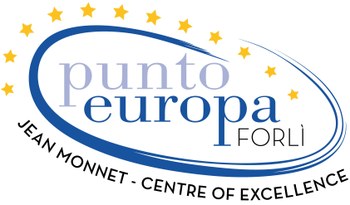The research of MIGREU Jean Monnet Chair

Three new lines of research will be implemented:
1) Going back to the years of the Great Migration (1890-1914), the role of remittances in Italian history will be investigated further and analyzed under a new light, not so much in their role as standard-of-living boosters for families left behind, but especially as regards their role in enhancing local banks’ credit policy. Therefore, this research will try to evaluate less known and more long-term effects of remittances on more generous bank policies towards local entrepreneurs and infrastructural investments
2) A new historical and empirical research effort will shed light on the history of Chinese immigrants in Italy and on the role and impact of small immigrant business in the EU countries. In the first case, the idea is to reconstruct the long-term presence of Chinese immigrants in Italy, from the 1930s to the present time. In the second case, research will focus on small immigrant business in Italy and other European countries. We know that ethnic business often relies on pre-modern values and solidarities, but it surely also relies on the export of a micro-enterprise model which replicates the one of the country of origin to many extents (in terms of financial resources’ source, organizational structure and human capital). The idea is to extend the analysis to those immigrant nationalities with a superior business propensity. A part of the project will be also implemented through a series of interviews to immigrant entrepreneurs in Italy. The results will be presented in the final conference envisaged within this Action.
3) Finally, a third line of research will investigate second generation immigrants and the integration difficulties faced by the different immigrant communities. We need to better understand if and how integration or the lack of it in receiving societies affects the second generation, their perceived national identity, sense of belonging, school career/high failing rate and even entrepreneurial attitude. Social history and sociological approaches (investigative interviewing of subjects under scrutiny) will be fully utilized.
Can education improve the prospects of a more integrated European society in the future? Is it true that a possible connection exists between school attendance, proficiency and low levels of drop outs and a growing integrated multi-ethnic society? How much should Europe and the EU invest in eliminating or improving the disparities second generation immigrants face? An important share of second generation immigrant’s don’t feel at home in their hosting country. The third line of this research aims at highlighting the economic and education disparities that still exists and evaluate new approaches that can help Europe face these open issues.
The research will be conducted with a historical methodology, but confrontations with academics will be always searched, in the belief that migration studies can be deepened only in a multidisciplinary perspective. Furthermore, social history and sociological approaches (investigative interviewing of subjects under scrutiny) will be fully utilized. To this end an oral history archive based on interviews with different generation migrants will be created.
The research issues are highly innovative: little is known about immigrant business nowadays and what’s more important immigrant entrepreneurs and immigrant remittances have been rarely studied in a long term historical perspective. Furthermore, the third line of this research aims at highlighting the economic and education disparities that still exists. Hence, the research is expected to contribute to the scientific widening needs through a multi-disciplinary study, that finds considerable added-value in a topical debate in today’s European (fragile) multicultural society.
